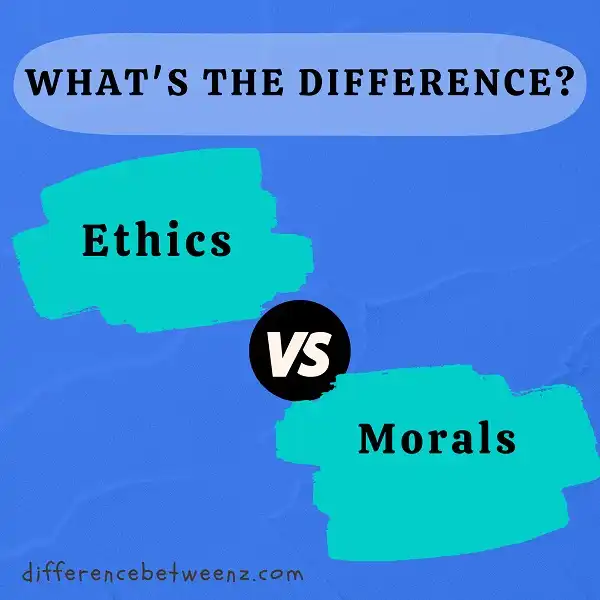You may have heard the terms “ethics” and “morals” used interchangeably, but they actually denote two different concepts. Ethics refers to the system of moral principles by which one lives, while morals refer to the feelings that arise from following those principles. In other words, ethics are the rules you live by, while morals are the judgments you make about your own behavior. While there is some overlap between the two, they are distinct concepts.
What is Ethics?
Ethics are a system of moral principles that govern the behavior of individuals and groups. The term is derived from the Greek word ‘ethos,’ which refers to the character or nature of a person or group. Ethics are often divided into three categories: personal ethics, professional ethics, and social ethics. Personal ethics are the moral principles that guide an individual’s behavior in their personal life. Professional ethics are the moral principles that guide an individual’s behavior in their professional life. Social ethics are the moral principles that guide an individual’s behavior in their interactions with other people. All three types of ethics are important in guiding human behavior.
What is Moral?
Many people think of morality as a code of conduct that is dictated by religious teachings or cultural traditions. Others may view it as a set of personal principles that guide our individual choices. But what exactly is moral? And where do our beliefs about right and wrong come from?
- One definition of morality is the belief that certain actions are right or wrong, regardless of the consequences. This means that we believe some things are intrinsically good or bad and that our task is to act in accordance with this knowledge. For example, most people believe that it is always wrong to murder innocent people, even if doing so would achieve some greater good.
- But where do these beliefs come from? Some philosophers argue that they are innate—that we are born with an understanding of right and wrong. Others maintain that they are learned through experience, either through the consequences of our own actions or through observation and instruction from others. It is also worth noting that our beliefs about morality may change over time as we learn new information or have new experiences.
Difference between Ethics and Morals
Ethics and morals are often used interchangeably, but there is a subtle difference between the two. Morals are based on personal preferences and beliefs, while ethics are based on universal principles. Morals are concerned with what is right or wrong for an individual, while ethics are concerned with what is right or wrong for society as a whole. Morals can be changed or influenced by personal experiences, while ethics are considered to be more objective. As a result, ethical decision-making is often based on a more rational analysis of the consequences of an action, rather than on emotional reactions. Ultimately, both ethics and morals are concerned with promoting good behavior, but they take different approaches to achieve this goal.
Conclusion
The difference between ethics and morals is an important distinction to make. While they are often used interchangeably, they have different meanings and implications. Ethics refers to the system of beliefs about right and wrong behavior, while morals refer to the personal codes we live by. This distinction is important because it can help us understand why people behave in certain ways, even when they may not be following their ethical beliefs. When it comes to business or marketing, understanding the difference between ethics and morals can help you create a more effective strategy that takes into account how people think and act.


